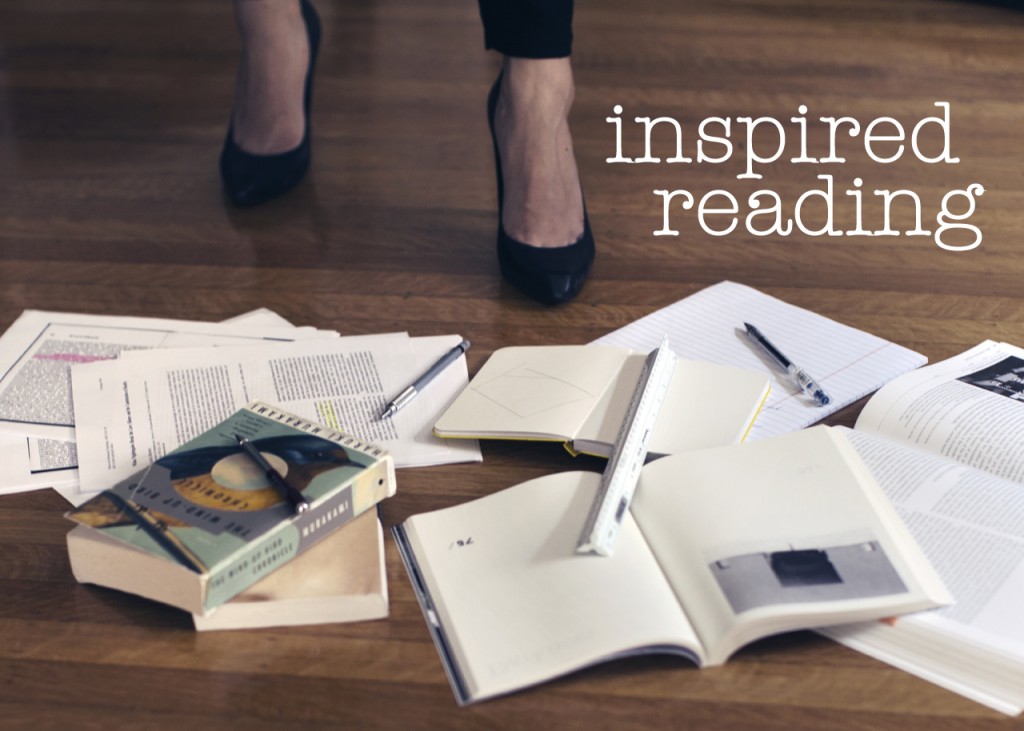Each month, Inspired Reading features an interview with an artist or cultural producer about their current project(s), focusing on what texts have informed them along the way. Each column includes a reading list with links to texts cited. Inspired Reading offers insight into the conceptualization of a body of work, exhibition, or other art project, while also giving readers a chance to build a reading list of their own. In the tradition of Frieze magazine’s “An Ideal Syllabus” series, which asks artists, curators, and writers to share their thoughts on the books that have influenced them, this column carries forward that curiosity about literary influences and focuses it on current projects. Inspired Reading lets readers in as ideas are developing—offering a uniquely angled sneak peek into upcoming projects. This column publishes the fourth Monday of each month.
Each column will also feature photographs by Juliette Tang, a San Francisco-based photographer whose “Still Life With Book” series has been recognized on NPR, Flickr, and by many others. A former English major at Dartmouth, Juliette finds inspiration through reading and sharing her photographic interpretations with others. Literature is her life, and she brings life to literature through her photographs.
In this inaugural post, I am happy to feature Jens Hoffmann’s reading list for the upcoming Istanbul Biennial, Untitled (12th Istanbul Biennial), which opens on September 17, 2011. Jens is co-curating the exhibition with the São Paulo-based curator and writer, Adriano Pedrosa. Together, the curators drew inspiration from many sources, but most prominently from the artist Felix Gonzalez-Torres, whose art was often political yet personal. In that same vein, the selection of books that Jens provided reflects an interest in how politics shape art and explores how personal identity is formed and defined.
The following is Jens Hoffmann’s reading list, along with my commentary, for Untitled (12th Istanbul Biennial).
Istanbul: Memories and the City (2004) by Orhan Pamuk
Still the melancholy of this dying culture was all around us. Great as the desire to westernize and modernize may have been, the more desperate wish was probably to be rid of all the bitter memories of the fallen empire, rather as a spurned lover throws away his lost beloved’s clothes, possessions, and photographs.
The Ripening (1958) by Édouard Glissant
He who discovers the sea knows that he is no longer a river (a soul flowing on without turning back, leaping over the shoal of a dam, slipping over the weave of time, lingering over moments of beauty) but a broad expanse, a motionless surface, a measure of patience, where time stops and space is overwhelmed by its very magnitude.
The Human Condition (1958) by Hannah Arendt
The Aesthetic Dimension (1978) by Herbert Marcuse
State of Exception (2005) by Giorgio Agamben
The Prose of the World (1973) by Maurice Merleau-Ponty
The Politics of Aesthetics (2006) by Jacques Rancière
In reading through Jens’s selections, one begins to see how these texts can influence the conceptualization of an exhibition and engender a way of seeing. There are texts included that are sure to appear on more than one curator’s list as this column continues—the writings of Jacques Rancière or Herbert Marcuse’s The Aesthetic Dimension—as they often appear on the syllabi of many graduate courses in the arts. Others are tied specifically to the region, such as Orhan Pamuk’s poetic memoir about the city he grew up in and never left or perhaps, Giorgio Agamben’s State of Exception, which deals with the idea of how states are shaped by their periods of military leadership, of which Turkey has been subject to repeatedly throughout its history. The only novel on this list is The Ripening by Édouard Glissant, a Martinican writer. Though a novel based in the Caribbean island of Martinique may not be an obvious selection, it obliquely addresses the formation of a cultural identity and raises questions about politics and socioeconomic inequalities.
Untitled (12th Istanbul Biennial) takes place from September 17 through November 13. The exhibition will include five group shows and approximately 45 solo presentations.
